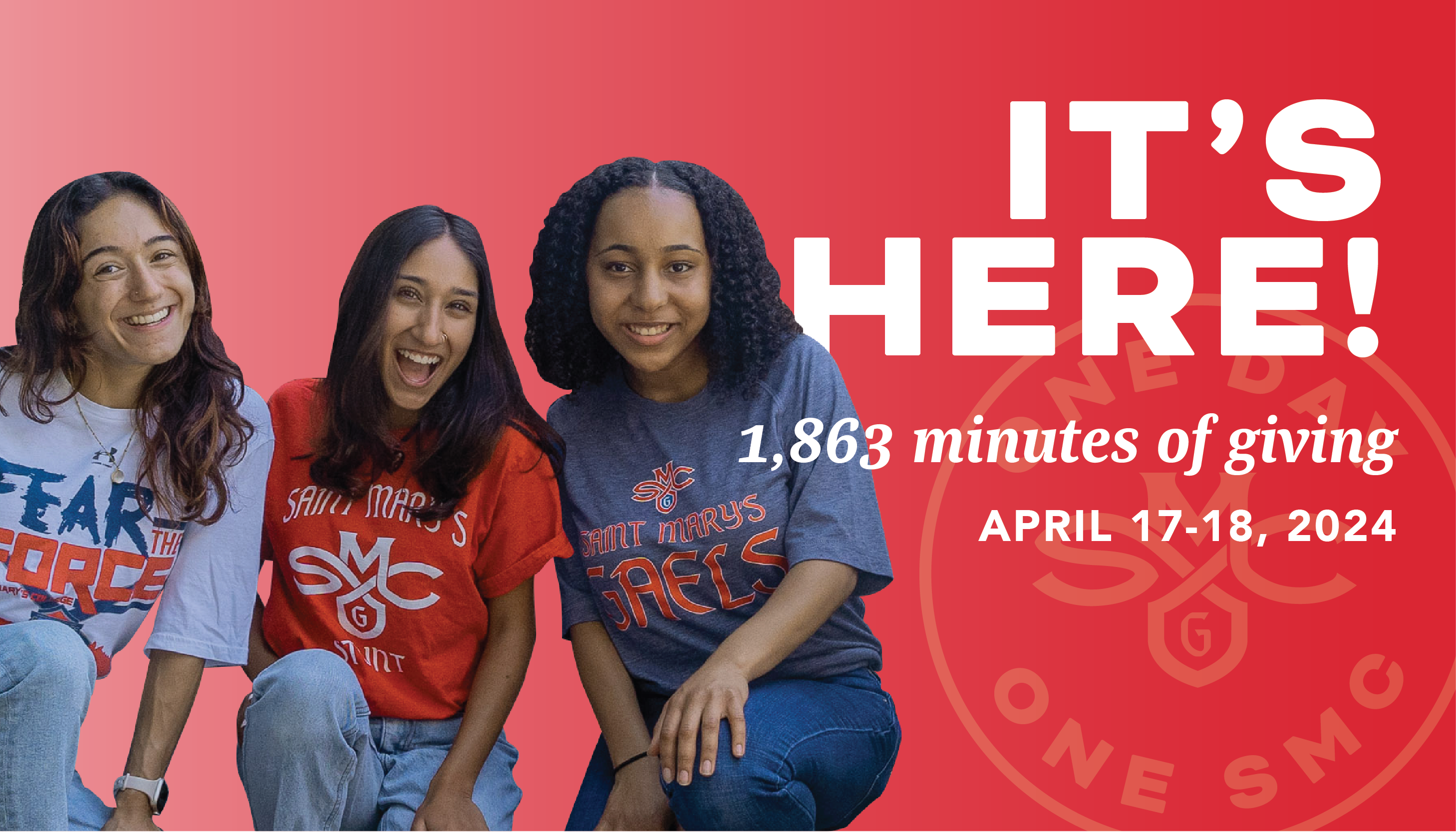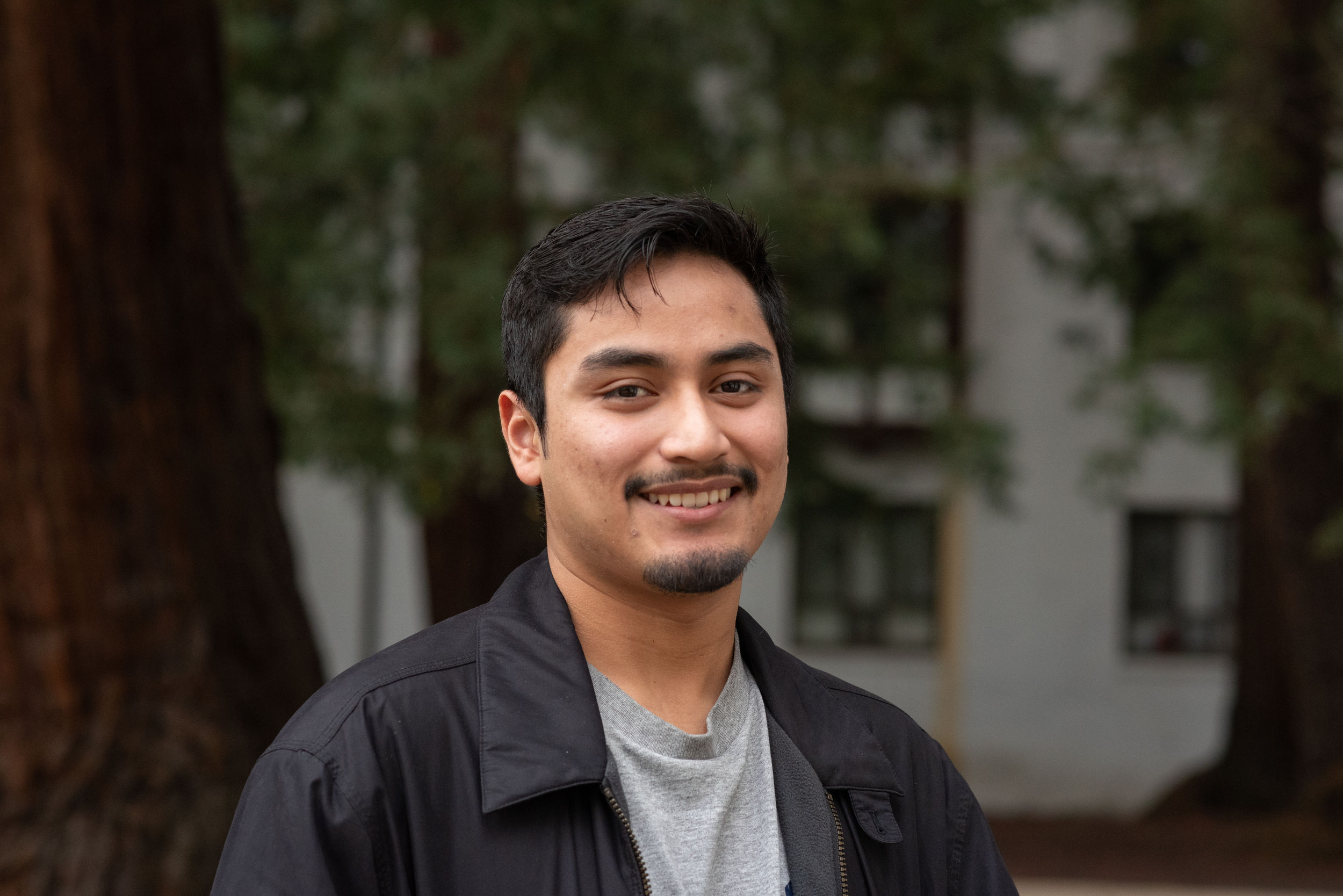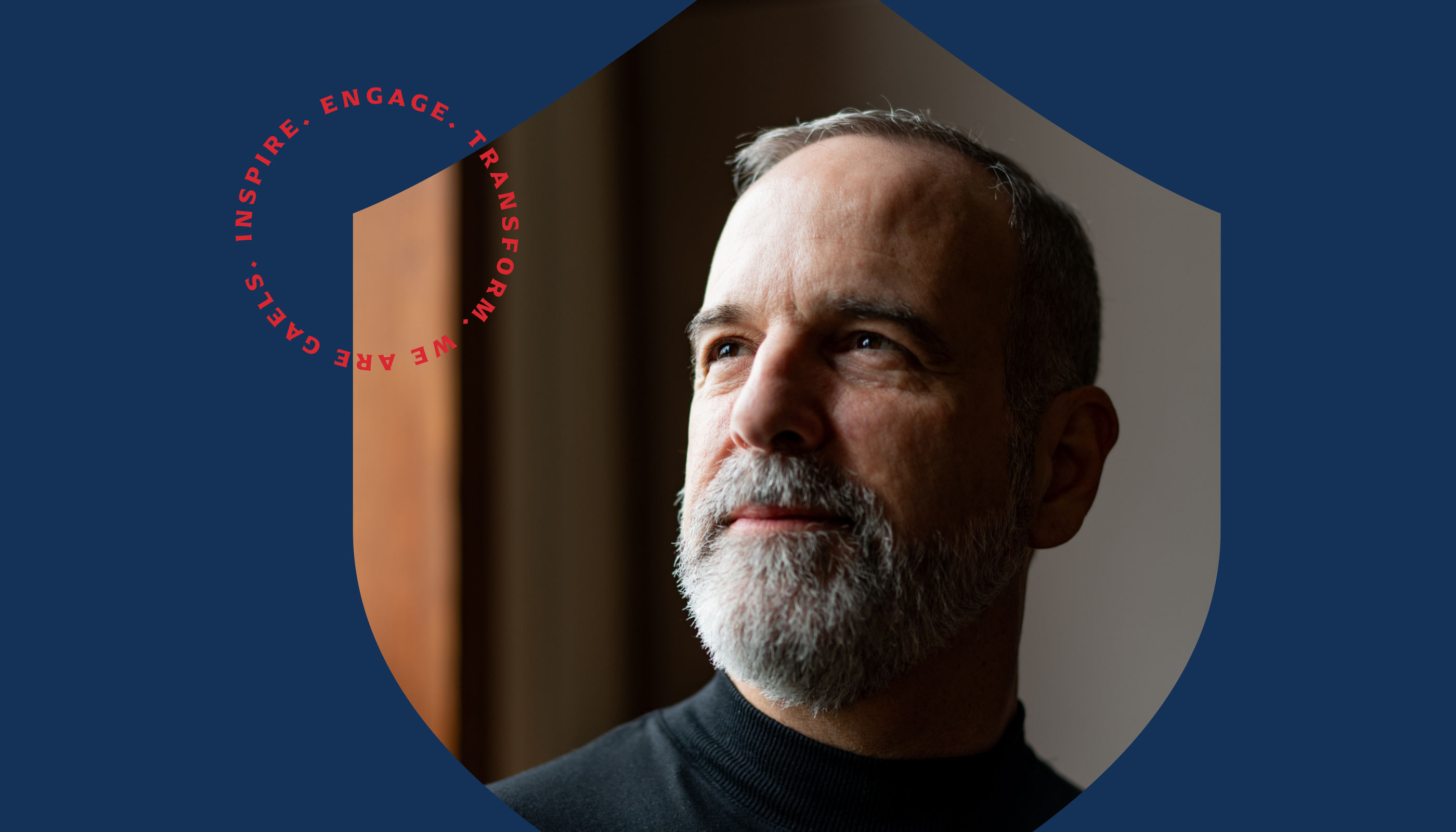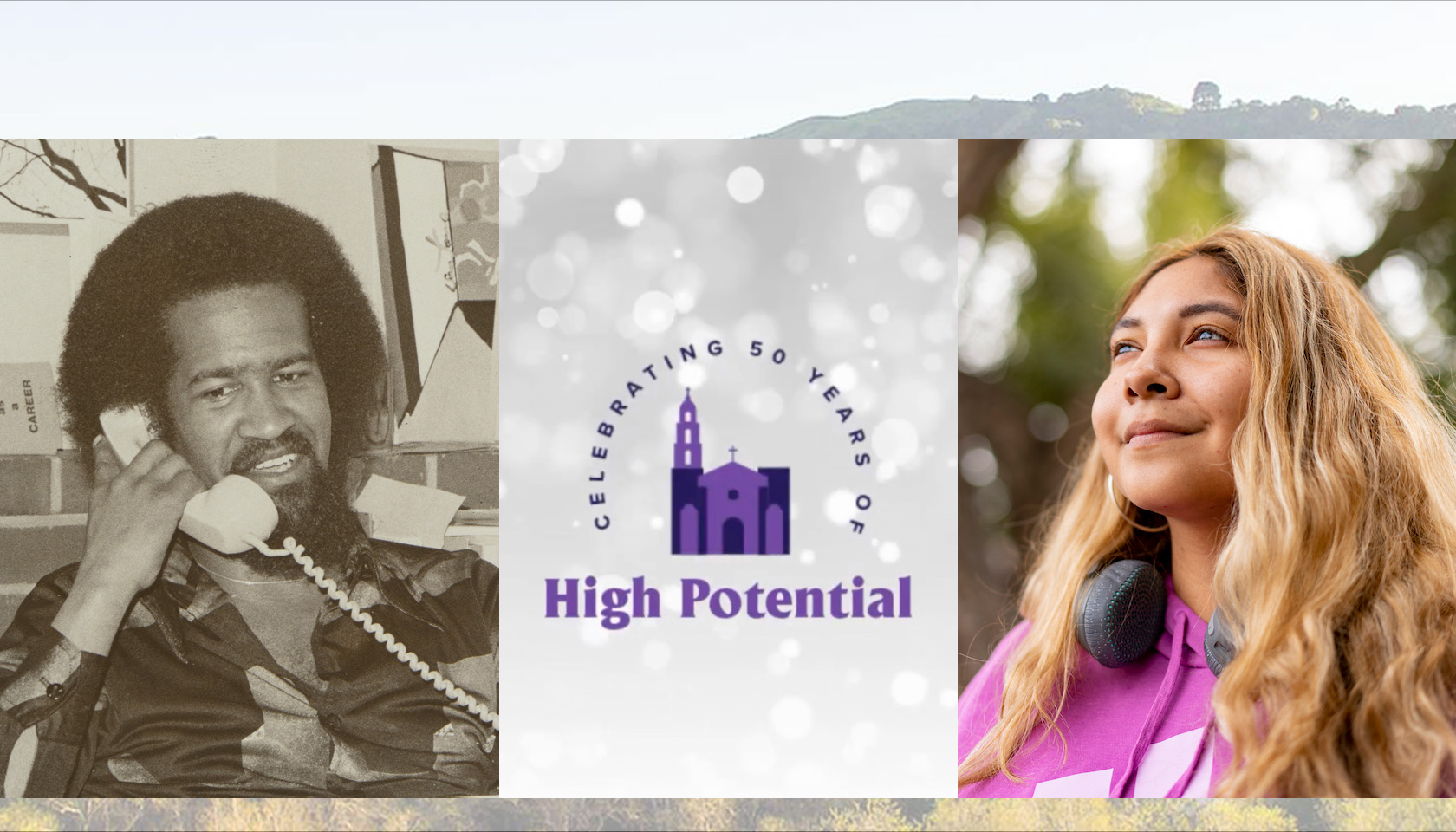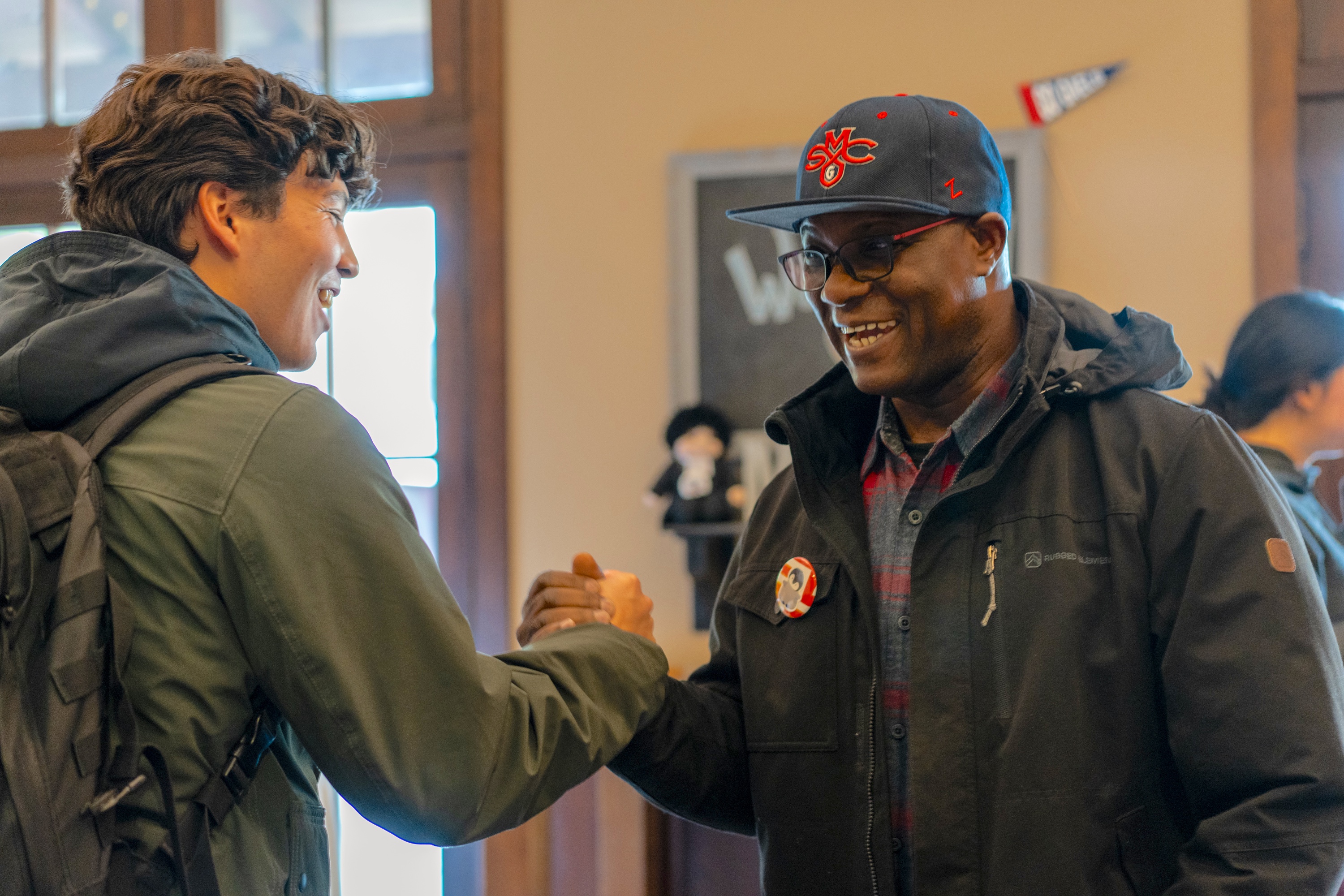
A mission of connection: Father Kwame Assenyoh, the College's new Chaplain, at a recent meet-and-greet on campus. Father Kwame was drawn to SMC because of the College's core Lasallian values, he says. “They’re solid, and we can all find ourselves in them.” / Photo by Francis Tatem
In Their Own Words: Father Kwame Assenyoh on ‘Restoring Humanity's Inherent Diversity’—in Ghana, Louisiana, and Here and Now
Originally from Ghana, his first experience as a pastor was overseeing Black Catholic parishes in the American South. Now he’s the new Chaplain at SMC, encouraging students to embrace the Lasallian principle of “respect for all persons.”
In Their Own Words is a series in which we introduce you to the Gaels you need to meet—students, alums, faculty, and staff—and let them tell their stories, in their own words.
Meet Father Kwame Assenyoh, an ordained Catholic priest in the Diocese of Oakland who recently joined Saint Mary’s as the College’s new Chaplain in the Mission and Ministry Center. Originally from Ghana, Father Kwame previously served as pastor of three Black parishes in Louisiana and lectured on African languages and literature at Stanford University. He is currently at work on an interdisciplinary PhD at the Graduate Theological Union in Berkeley, with a focus on Theology of Mission and African Diaspora.
A multiethnic, multilingual hometown
I was born in Accra, the capital of Ghana. It’s the biggest city in the country and very cosmopolitan. Everybody from the hinterlands and villages likes to be there. And Ghana is an English-speaking West African state, because it was formerly a British colony. We, of course, speak English with the accent of our local languages. There are more than 10 major local languages and each language has no fewer than four dialects.
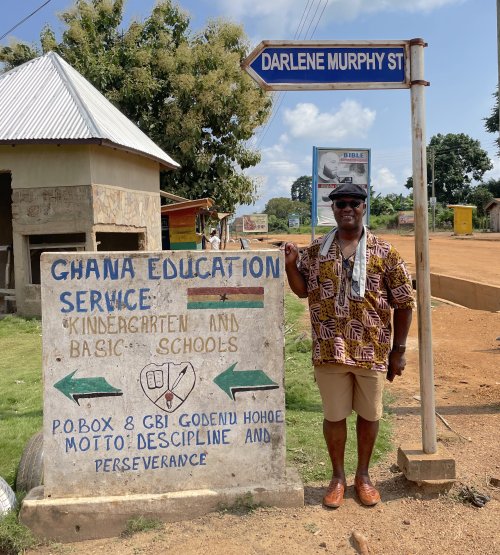
I picked up a lot of Ghanaian languages when I was young, and still speak about four of them. So living in Accra meant growing up eclectic. I was able to navigate through different cultures and traditions.
Journey to the priesthood—and the American South
I wanted to be a priest since the age of 10. At that time, a respected woman in our community—somebody we call a “seer” in our traditions—spoke to my parents. She whispered to them and said, I believe he looks like someone who will be a priest in the future. When I heard her say that, I was like, “Done. It’s a done deal!”
After my ordination in 1998, my first assignment was to the US. I’d never run a church in my home country. Now, my first real experience would be working with Black Catholic churches in Louisiana and Mississippi. I began as associate pastor in Saint Martinville in rural Louisiana for nine months, before becoming the pastor of a church in New Orleans. That congregation was one hundred percent African American. It was created in 1943 by Black Catholics who had been forced to sit in the back of white churches and wait until white people took Communion.
I led that Black parish for seven and a half years. I was there in 2005, during Hurricane Katrina. The Church was partially destroyed. I remember the floodwaters filling the rectory, and the winds blowing out the windows. The buildings were standing, but everything inside was gone. So I worked to rebuild the church and bring people back. Then I left to go to Boston to cool off a little bit.
A shared mission with Saint Mary’s
I had already completed my master’s in theology and religious studies, so I went on to study for the Licentiate in Sacred Theology (STL) degree at Boston College. After that, I knew I wanted to step outside of ministry and into an educational setting. I moved to the Bay Area to pursue my PhD at the Graduate Theological Union in Berkeley. During that time, I also taught at Stanford part-time and joined the Oakland Diocese as a priest, working in parishes in Oakland, Pleasanton, and, recently, Livermore.
In 2023, this Chaplain position came up at Saint Mary’s, and I said, “Yes!” Saint Mary’s had been on my radar before. I knew a little bit about the Lasallian Christian Brothers’ spirituality, and their principles match very much what I discovered to be my mission here in the United States.
When I worked among Black people in the South, I saw the need for restoring humanity’s inherent diversity. If you work against the racism and discrimination of Black people, you will be making headway toward bringing peace to humanity. That goal of restoration is a starting point for what I see in the Lasallian principle of respect for all people. I want to be part of that work at Saint Mary’s.
"The goal, really, is to unite all humans. What else is the purpose of 'Catholic' and 'Lasallian' and 'liberal arts' if not to serve the imprisoned, feed the poor, or be good citizens?"
Grappling with histories and systems
Lately, I have heard from some Americans things like, “We're tired of race. We are tired of hearing that. We have to move on.” Now, that sounds good, right? But the problem here is that you can’t undo the past. The past actually created a system that will stay with us. And because it’s a system, it is very hard to overcome. Racism is as significant in our times as it was originally.
Therefore, there is a need for a perpetual recognition of the system. We must acknowledge there is privilege in the fact that if you are white, and you and I are reaching for the same goal, the probability that you will make it, and I will not, is high. Right? Not that I don’t have the skills for it, of course. But if you can’t see and recognize that privilege—if you don't know that that exists—then you become an accomplice to the problem.
The system persists: in America, in Ghana, in the Catholic Church. When I was baptized, I was given the name “Bernard” by the pastor who baptized me. But Bernard was not my first name, you know? Kwame is. So when I came to the US, and I studied postcolonialism and began to resist and change certain things, I started using Kwame. That’s supposed to be my real name. Only when I got out of Africa was I able to see this.
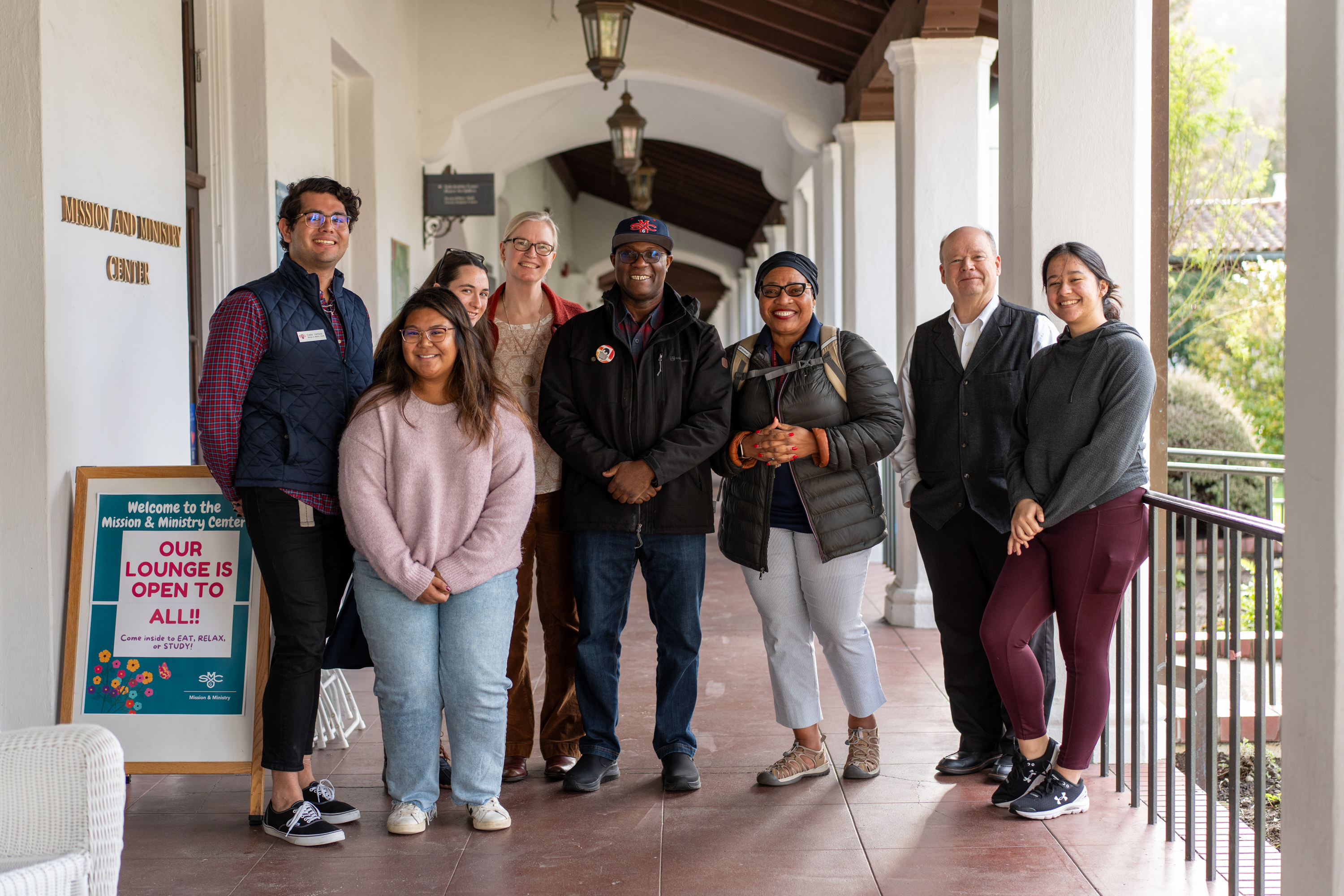
Brother Charles Hilken, and Oak Pareja '24 / Photo by Francis Tatem
The power of Lasallian community
I came to Saint Mary’s because of the Lasallian principles. They’re solid, and we can all find ourselves in them. The goal, really, is to unite all humans. What else is the purpose of “Catholic” and “Lasallian” and “liberal arts” if not to serve the imprisoned, feed the poor, or be good citizens? Building communities, getting water, offering education, attaining equality—all of those things can be achieved, through the Catholic church and others. I'm using the Catholic way, but I know that there are other spiritual paths.
No matter the path, the goal for all of us should be humanity, humanity, humanity. As far as I'm concerned, if we want to solve the problems facing us, we should take care of human beings. That is what’s driving me.
(This interview has been condensed and edited for clarity.)
Hayden Royster is Staff Writer at the Office of Marketing and Communication for Saint Mary's College. Write him.

